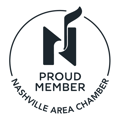Preparing for tech-industry interviews
 Are you getting ready for your first tech job search and feeling a little intimidated by the process of interviewing? According to Rich Rader, Principal Software Engineer at eviCore healthcare, it’s completely normal, though there’s no need to feel anxious when it comes to interviews with techies, you just need to understand what to expect! In his recent talk at NSS, Rich shared some strategies that you can use to prepare for your next tech industry interview.
Are you getting ready for your first tech job search and feeling a little intimidated by the process of interviewing? According to Rich Rader, Principal Software Engineer at eviCore healthcare, it’s completely normal, though there’s no need to feel anxious when it comes to interviews with techies, you just need to understand what to expect! In his recent talk at NSS, Rich shared some strategies that you can use to prepare for your next tech industry interview.
How to prepare for a job interview
Being in a leadership role for many years, Rich has conducted quite a few interviews for junior developers during his career. He shared 4 things to remember while preparing for your next interview:
1. Know that you will get most of the questions wrong.
Most interviewers are not concerned with how much you know, but rather how well you respond to the questions presented.
2. Don’t underestimate the value of your experiences prior to NSS.
Rich shares that even though most IT people “are weird,” your ability to communicate with effective people-skills is ultimately what will speak volumes during the interview process. “Software itself is a people problem,” he adds. “I spend a majority of my day talking. I write code, but so much of what I do is talking and dealing with people.” Rich says that this is where NSS graduates typically stand out the most by having a wide variety of backgrounds and experiences. “[Your diverse backgrounds and experiences are], in a lot of ways, your strengths when it comes to interviews and should be focused on because that’s absolutely an area where you will stand out,” Rich encourages.
3. Realize that you are not right for all organizations.
And not all organizations are right for you! The interviewing process is just as much about you getting to know if the company is a good fit for you as the company learning if you’re a good fit for them. Not every company or manager is going to be a “good fit,” and you’ll know pretty quickly if it is or not by the types of questions they ask, what they value in their employees, and if that lines up with your overall goals as a professional.
4. Know about the company, the people, the problem they solve, their customers, etc.
Don’t go into any interview without doing some research about the company and person you’re interviewing with. Go even a step further by asking your own questions at the end of your meeting.
What types of questions will be asked in your interview?
Every interview and interviewer is different, however, here are some questions that Rich commonly found in the interviews he experienced:
- SOLID principles
Can you identify the five design principles intended to make software designs more understandable, flexible, and maintainable? - Pillars of object-oriented programming Again, pretty basic, but you’d be surprised how many “basic” things slip your memory when under pressure. All the information is there, just take a deep breath and remember what you learned in bootcamp.
- Something to attempt to frustrate a person
Like the dreaded Google questions that Google themselves don’t even use anymore. (If you’re not sure what we’re talking about here, you can Google it.) - A whiteboard question
Pretty standard for any dev interview. - Questions related to how you think and work with people Going back to the “software is a people-problem” statement from earlier…
- And lastly, the age old “how would you solve 'This thing we do every day'” question.
This is mainly to test your process of problem solving and get a better idea of how you think.
Good developers don't just write code, they use software to solve business problems.
So what are the things that interviewers are looking for in junior developers?
Rich shares what he and other interviewers look for.
- Did you pay attention in class?
- Can you describe how things work and explain your thought process?
- Did you forget JavaScript?
- Do you know SQL?
- Could you solve a problem?
- Do you get frustrated?
- Do you have an ego?
While all these tips are helpful, Rich admits that the best way to prepare for an interview is to just do it. “There is no blueprint for succeeding in an interview,” he shares. No two interviews or interviewers are the same. A lot of interviews are subjective to the interviewer’s opinions, so what worked for one company might be completely opposite to another.
However, having an open mind and knowledge that you’re not alone in this is just as important as being able to recall SOLID principles on the fly. Also remember that NSS is here to support you and cheer for you every step of the way to your first job in tech!







